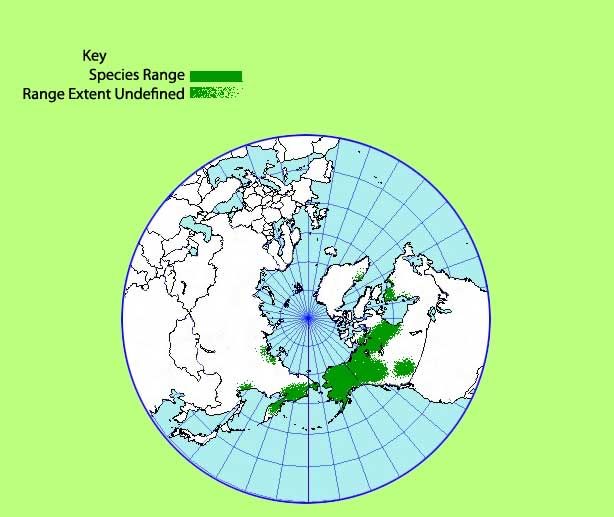There is a flat area above the treeline between Perkins Peak and Finger Peak that one neighbour has named The Plateau. I hiked up there in 2017, in September, after the fire. This time, three of us (with four dogs!) went up there on June 27.
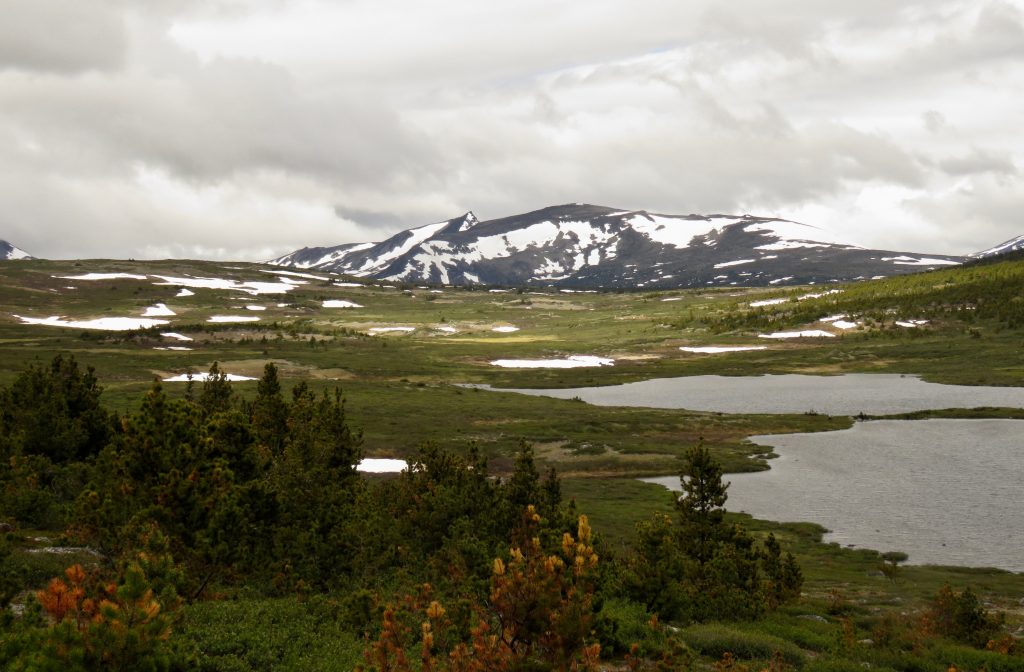
The forecast was not good, but one of my companions could only get away on that day. The sunrise was not promising.
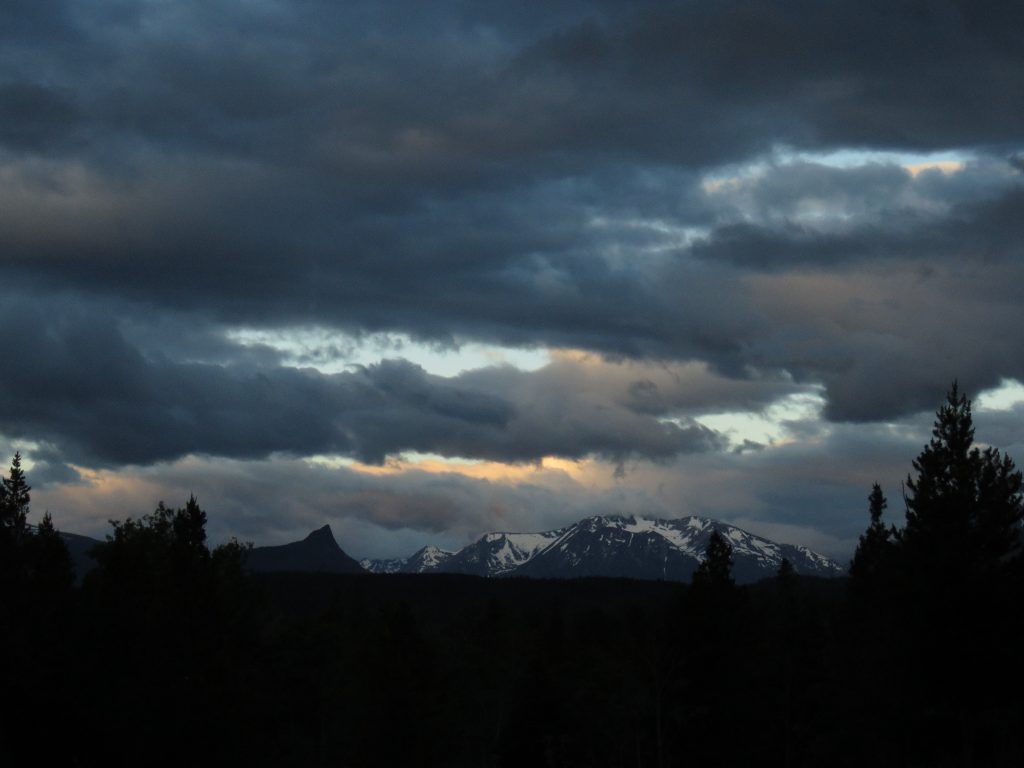
We could drive on logging roads to not far below the treeline. In the burned spots the lupins were amazing.
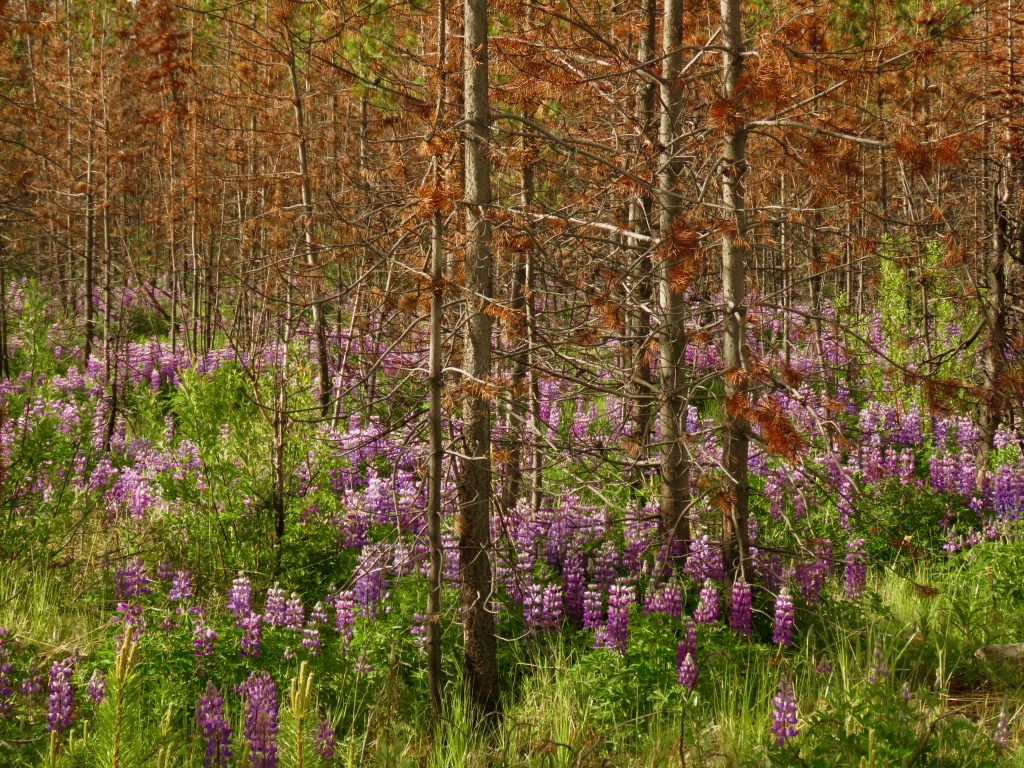
We would follow this creek to The Plateau.
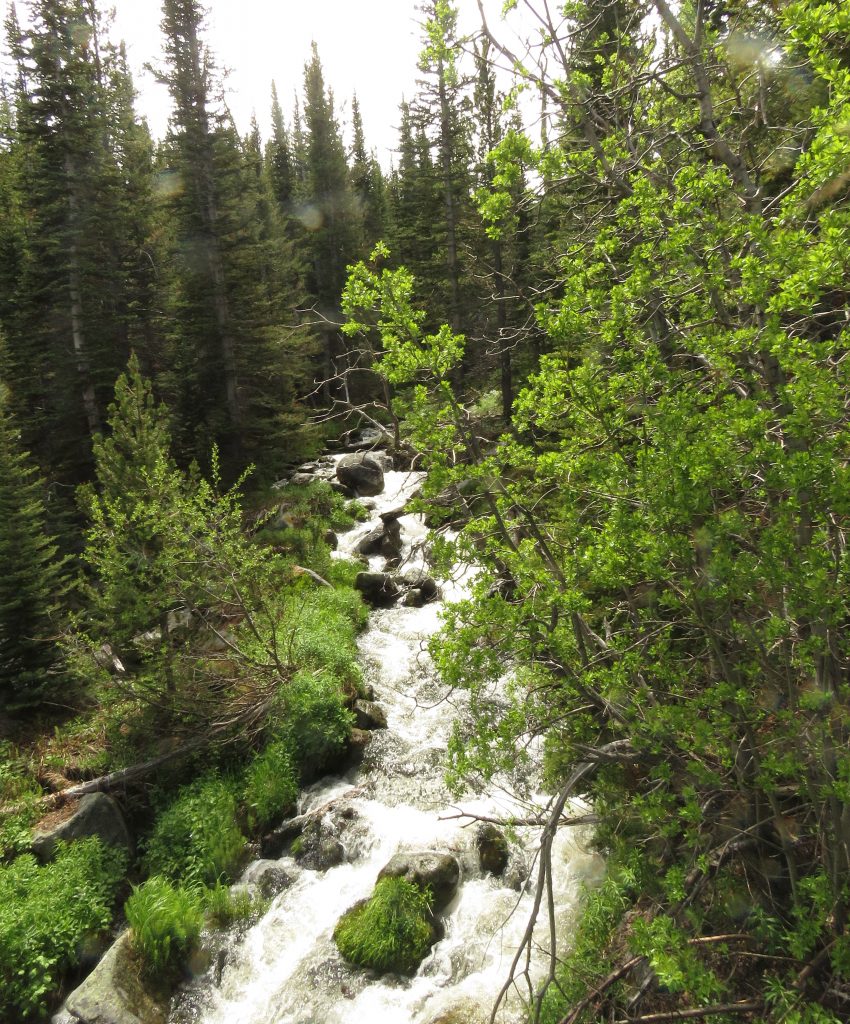
It is hedged in by dense subalpine fir, but a short distance away it is open and populated with white bark pine.
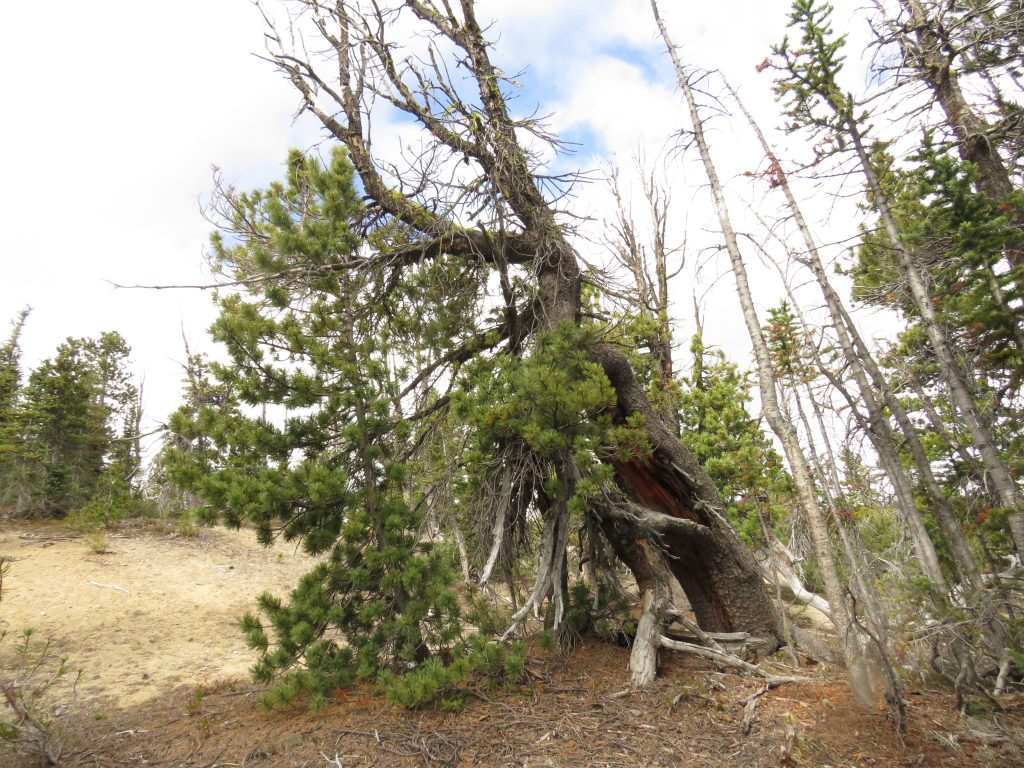
The ambiance of this mountains is very different from Perkin’s Peak. It is much more like Nuk Tessli. Mountain white heather grows in the forest.
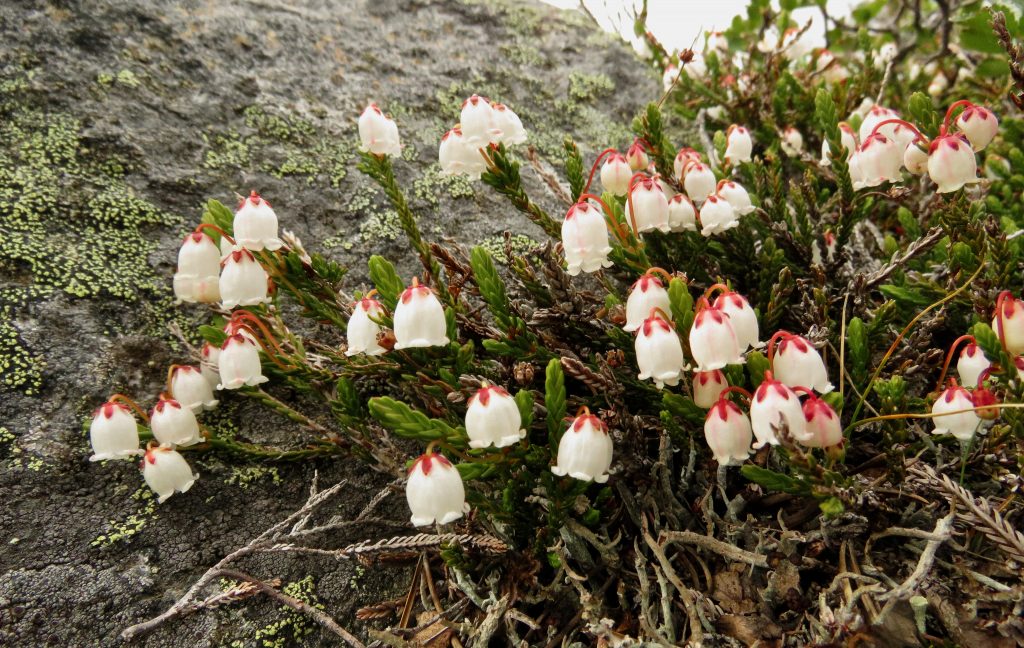
It wasn’t far to the top of the ridge, but everyone else was out of sight – including Harry who has always preferred to follow faster hikers. I was, however, in touch somewhat by radiophone although I soon lost contact with my friends and could only communicate with a tower. It is a great tool to have, though, when you are an old, lame, slow lady without even a dog to scare away the bears.
It was bitterly cold and I soon realized I did not have enough clothes with me. Clouds hovered over Nogwon,
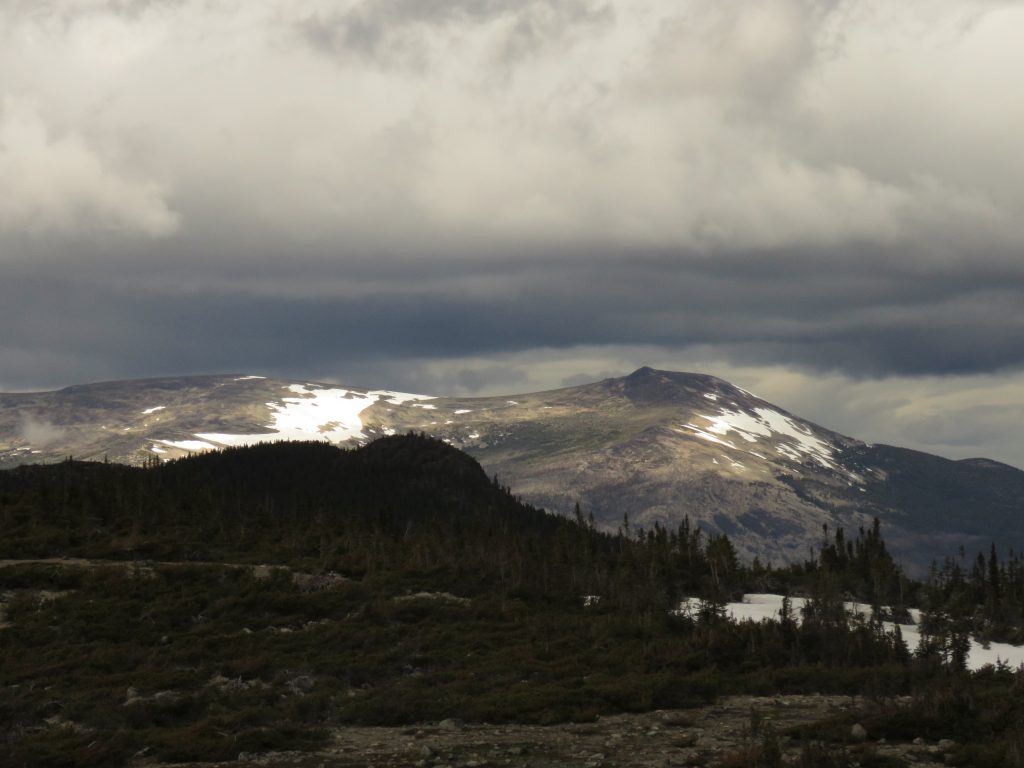
And soon the first storm swept over the plains below.
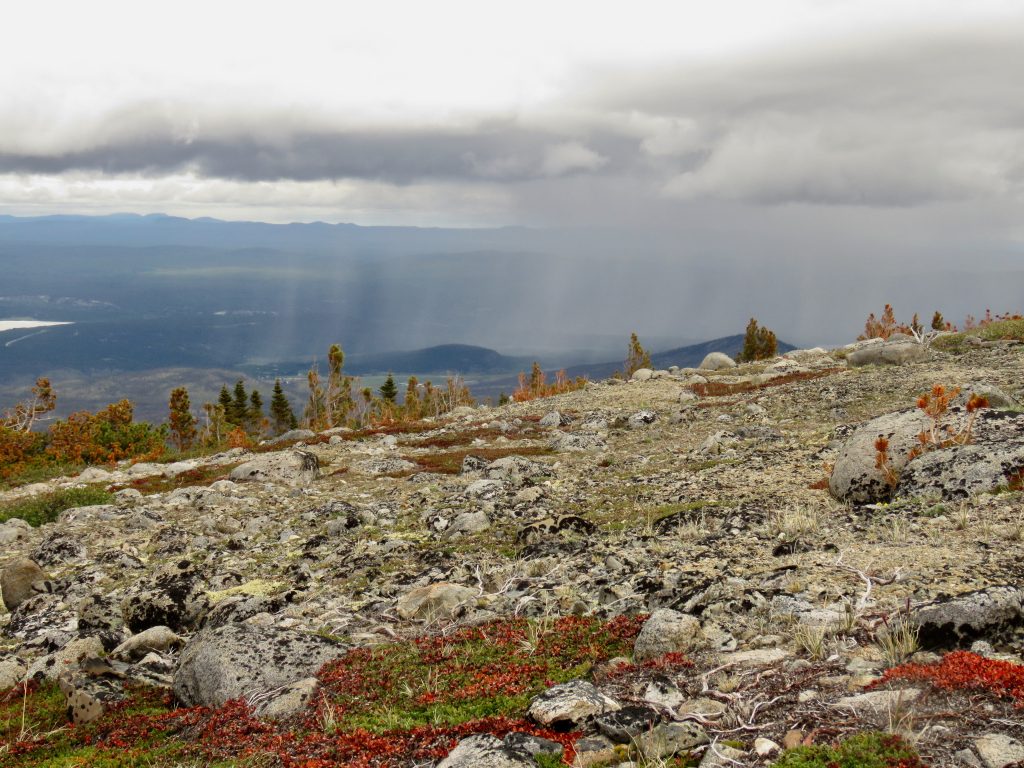
A lot of the vegetation was brown, particularly on the windward side, and I suspect it got beaten up during our exceptional cold spell in January. But little plants popped up here and there and helped me forget about the bitter wind.
Lyall’s lupin – a tiny, clover-sized plant.
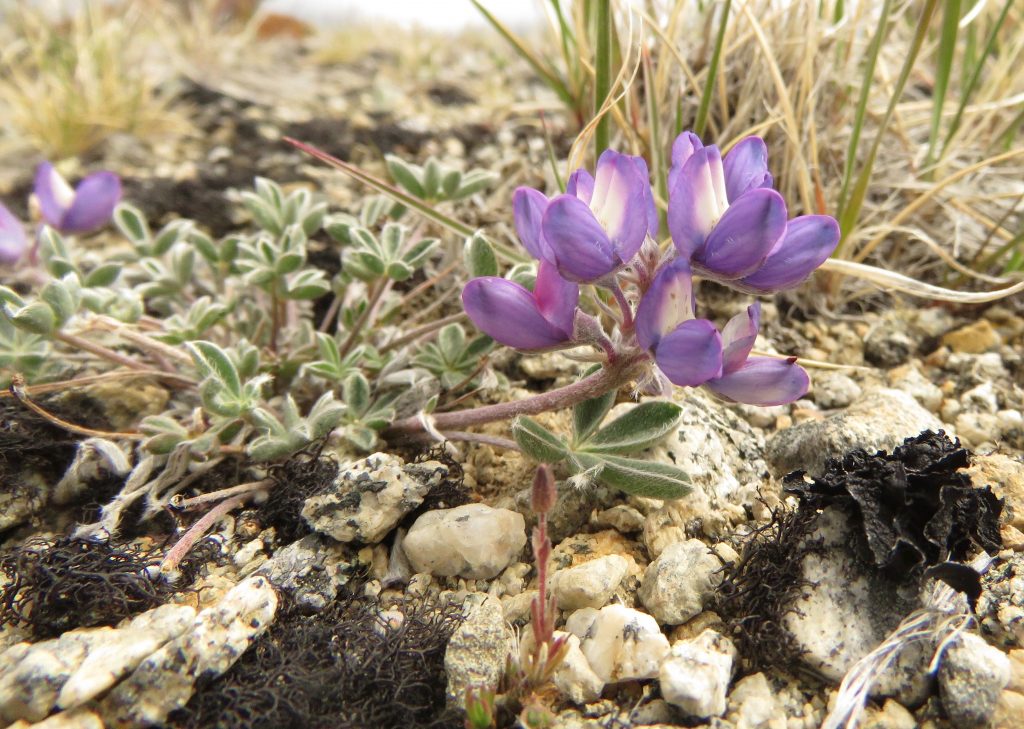
The endlessly photogenic moss campion.
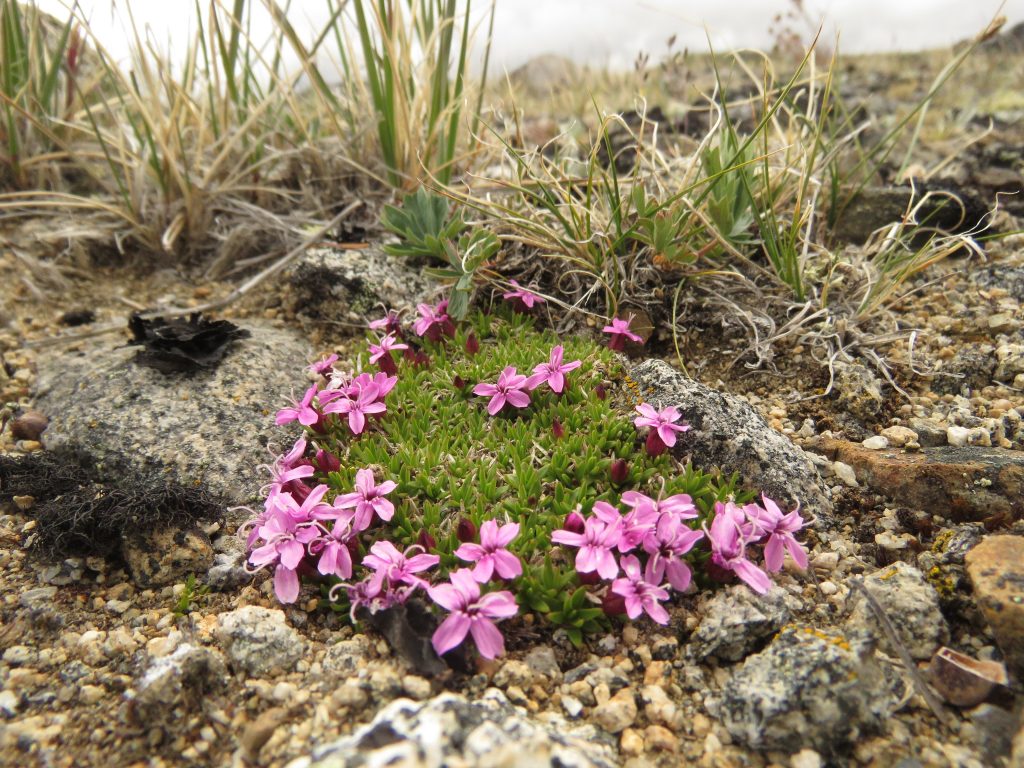
A yellow-rumped warbler posed on top of a bonsai lodgepole pine.
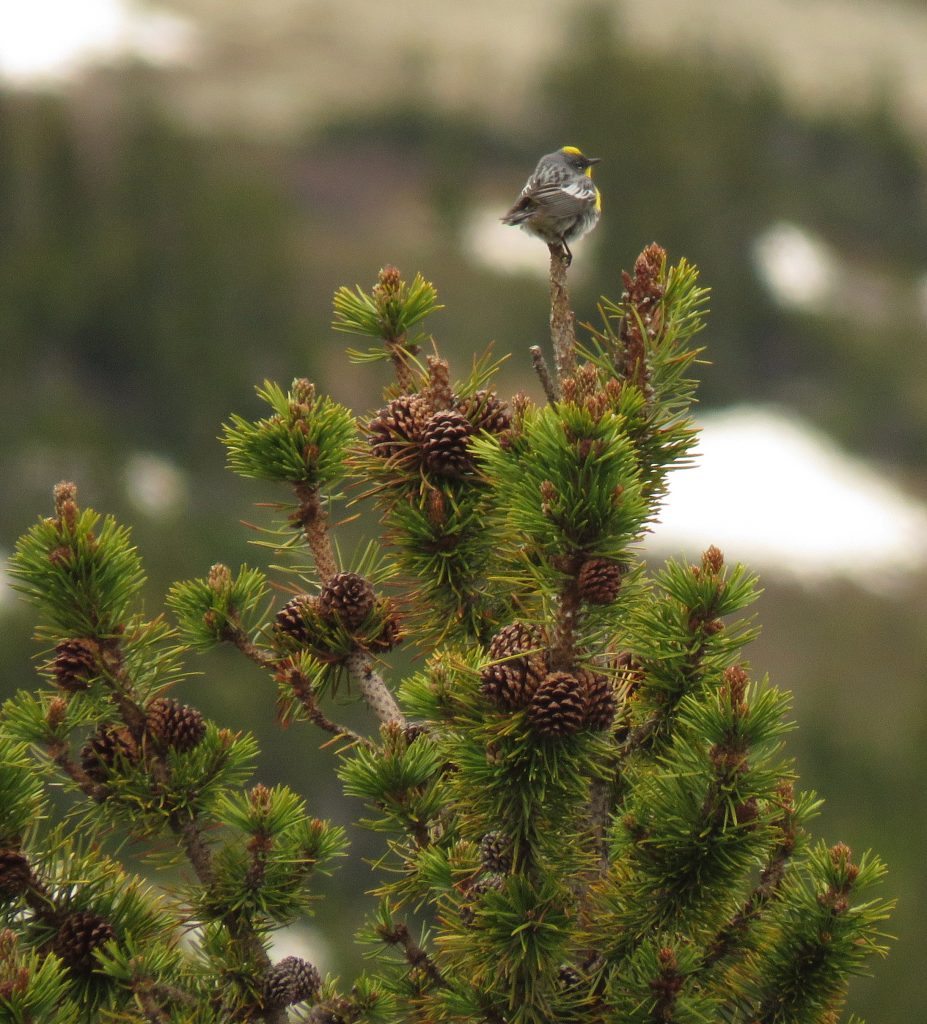
And storm two came rolling by.
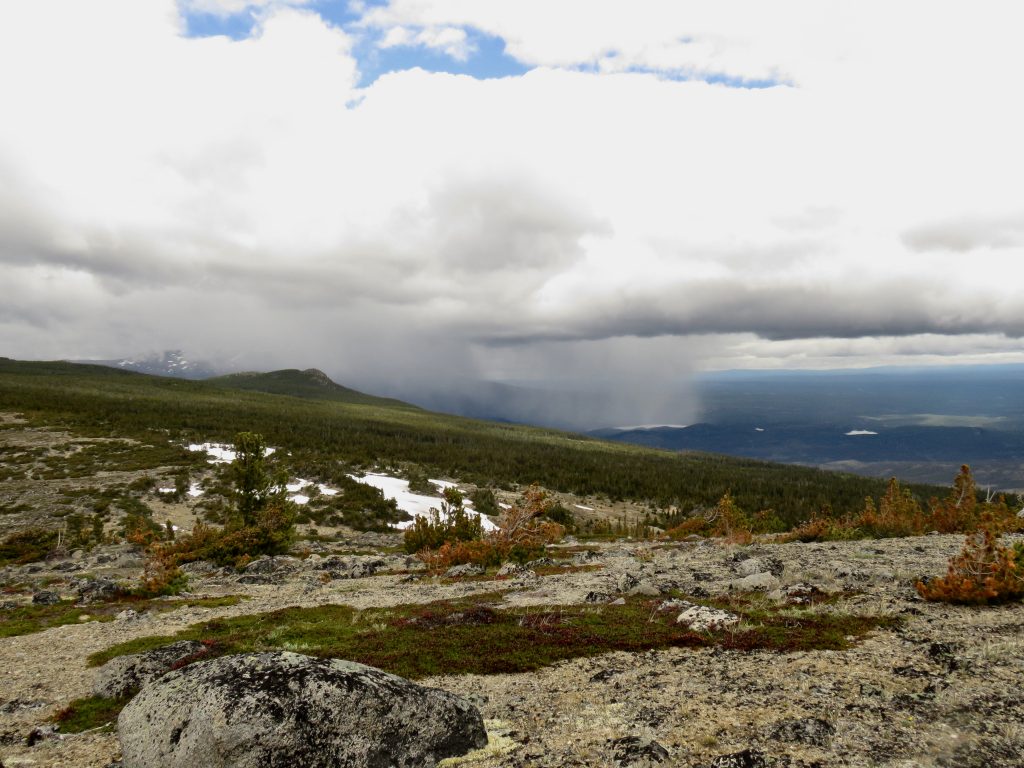
A squat species of cinquefoil was dotted about, probably Potentilla uniflora.
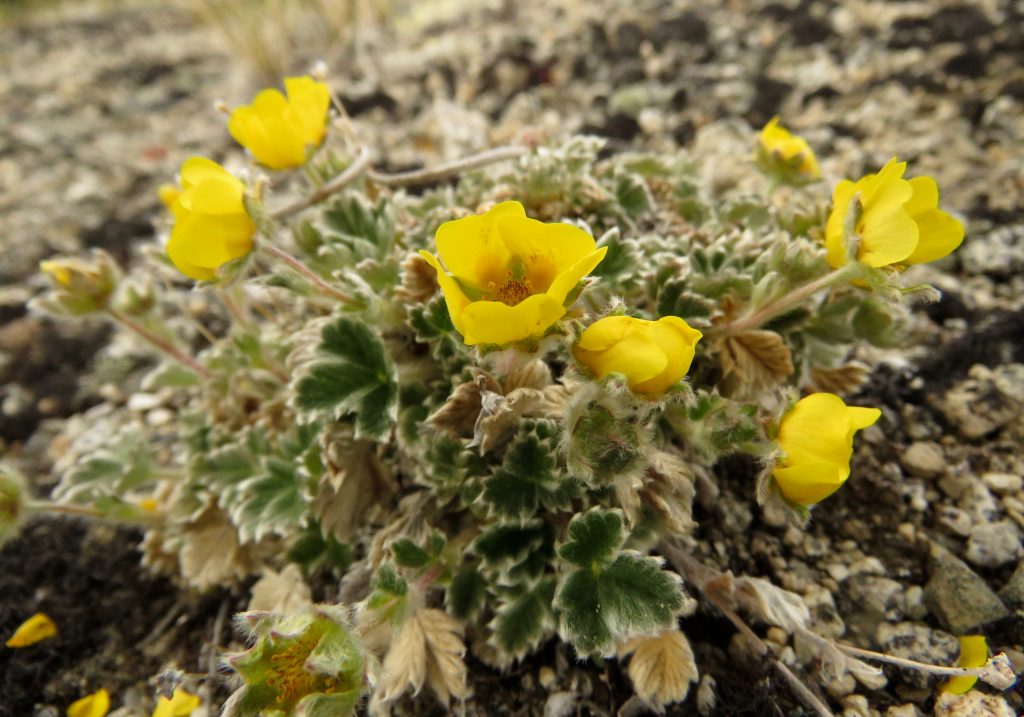
Nearby was a treat I have not seen very often, alpine arnica.
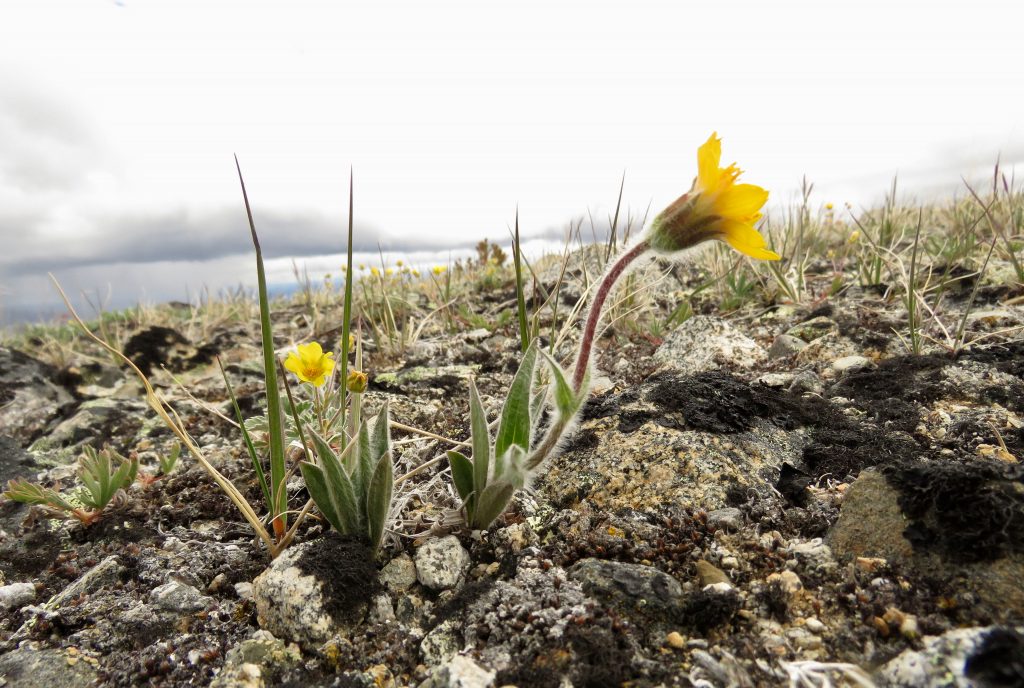
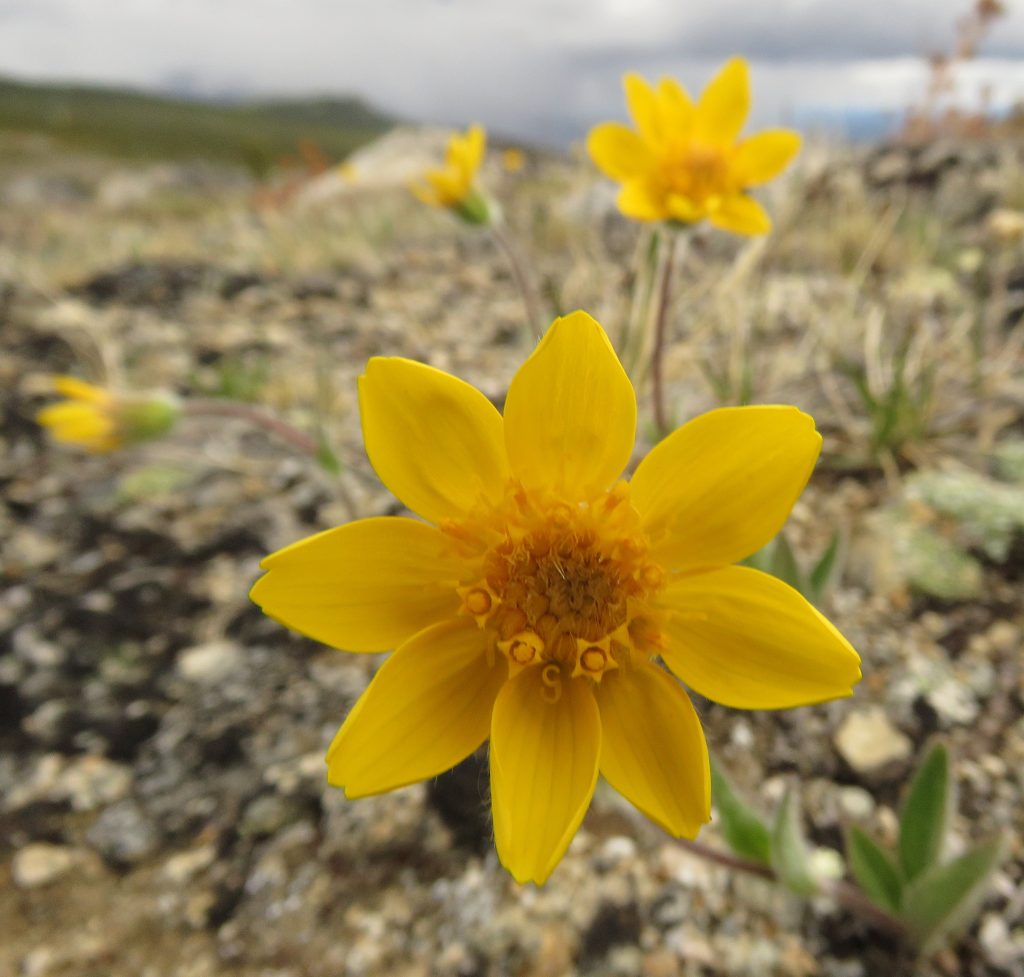
An ancient white bark pine clung to this exposed knoll. How long this tree has survived is hard to imagine. It looks dead from this angle, but there are still green branches on the far side.
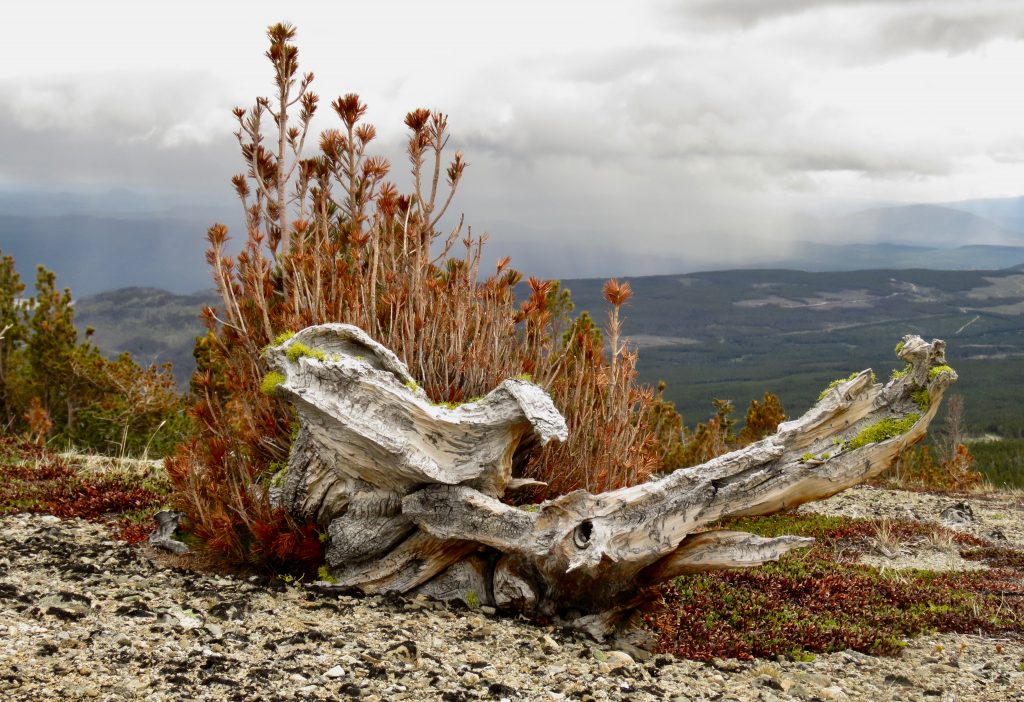
The storms were intensifying.
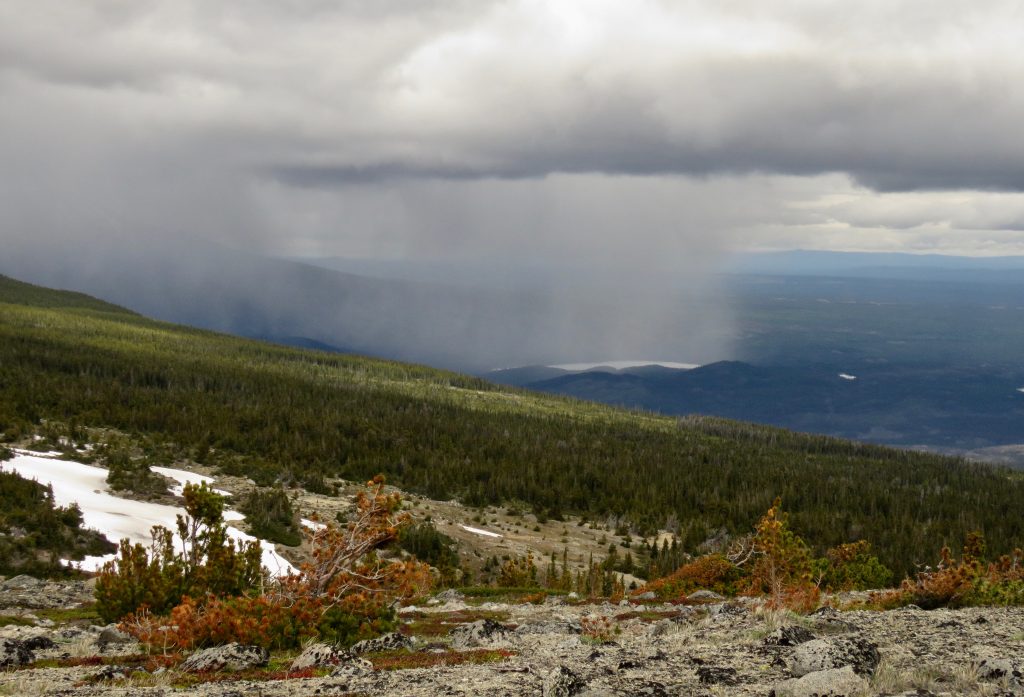
The others would do a complete circuit of this high valley,
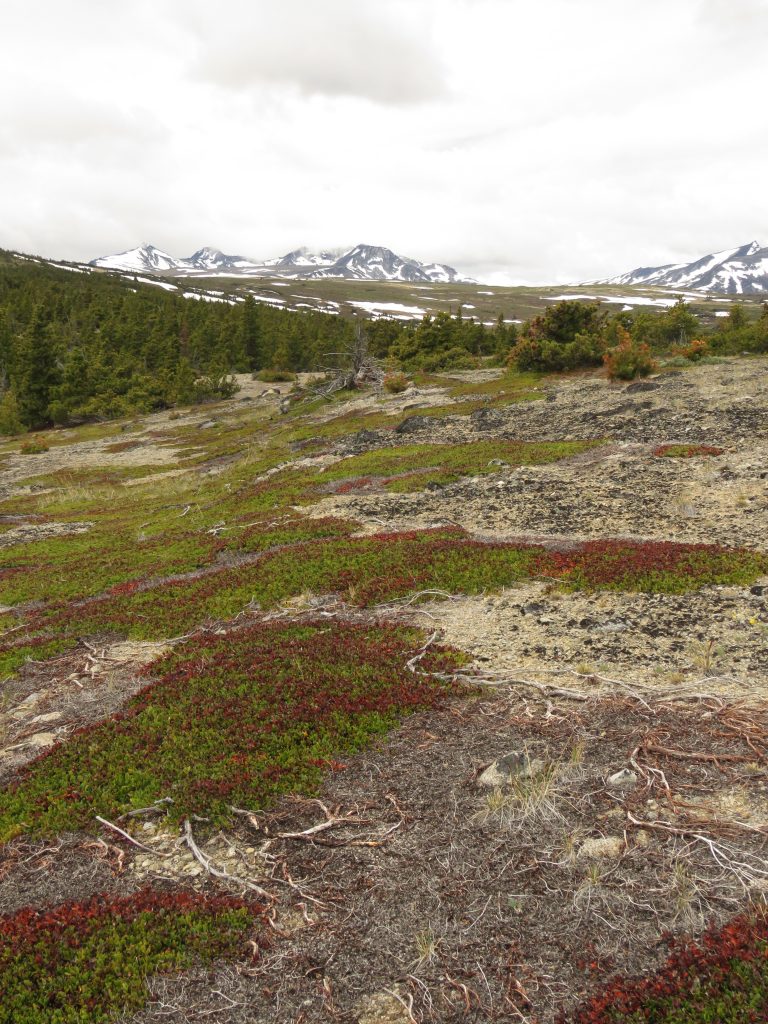
but for me it was time to go down.
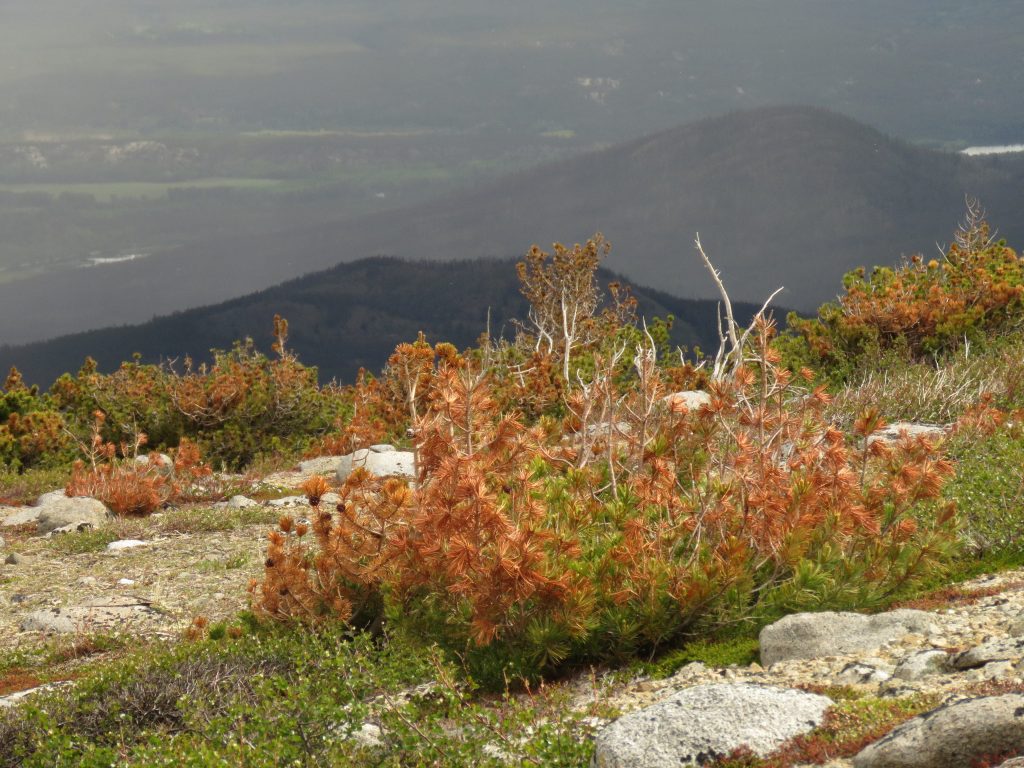
They apparently had clear weather, but as soon as I entered the trees, it snowed on me.
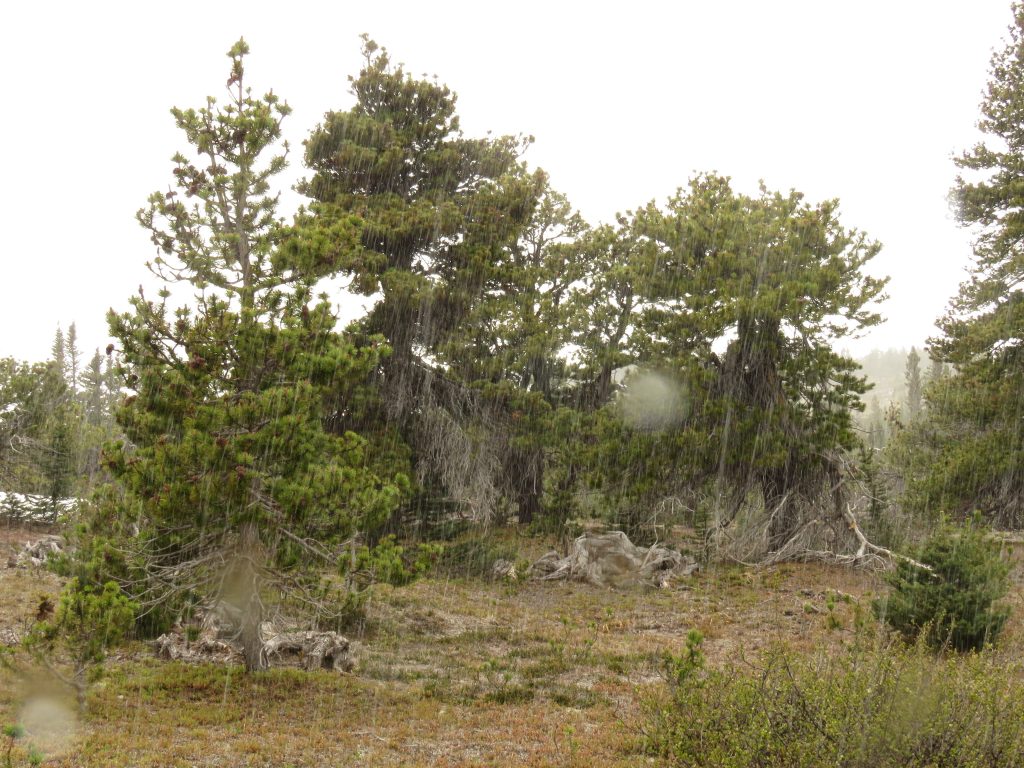
Some bog laurel warmed my heart, however.
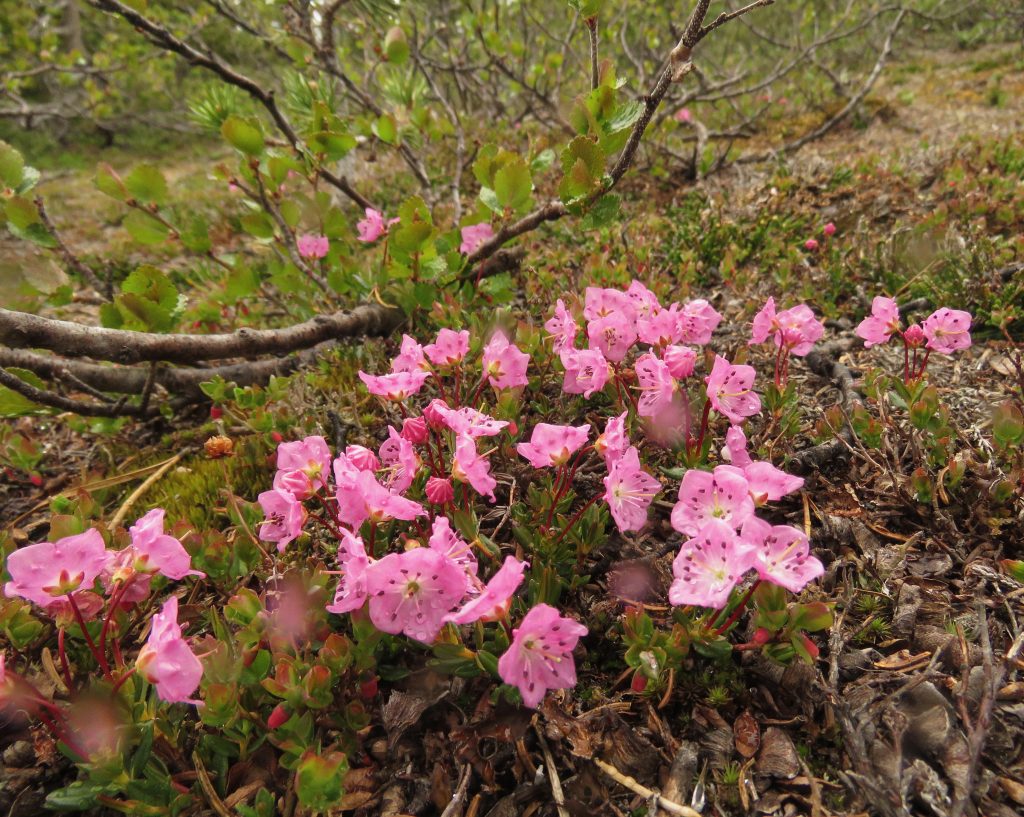
The buds have little ribs on them and at the bottom are pockets that hold the anthers as the flowers open. The stamens are therefore spring-loaded. When a bug walks on the flower, the anther shoots up and dollops pollen on it.
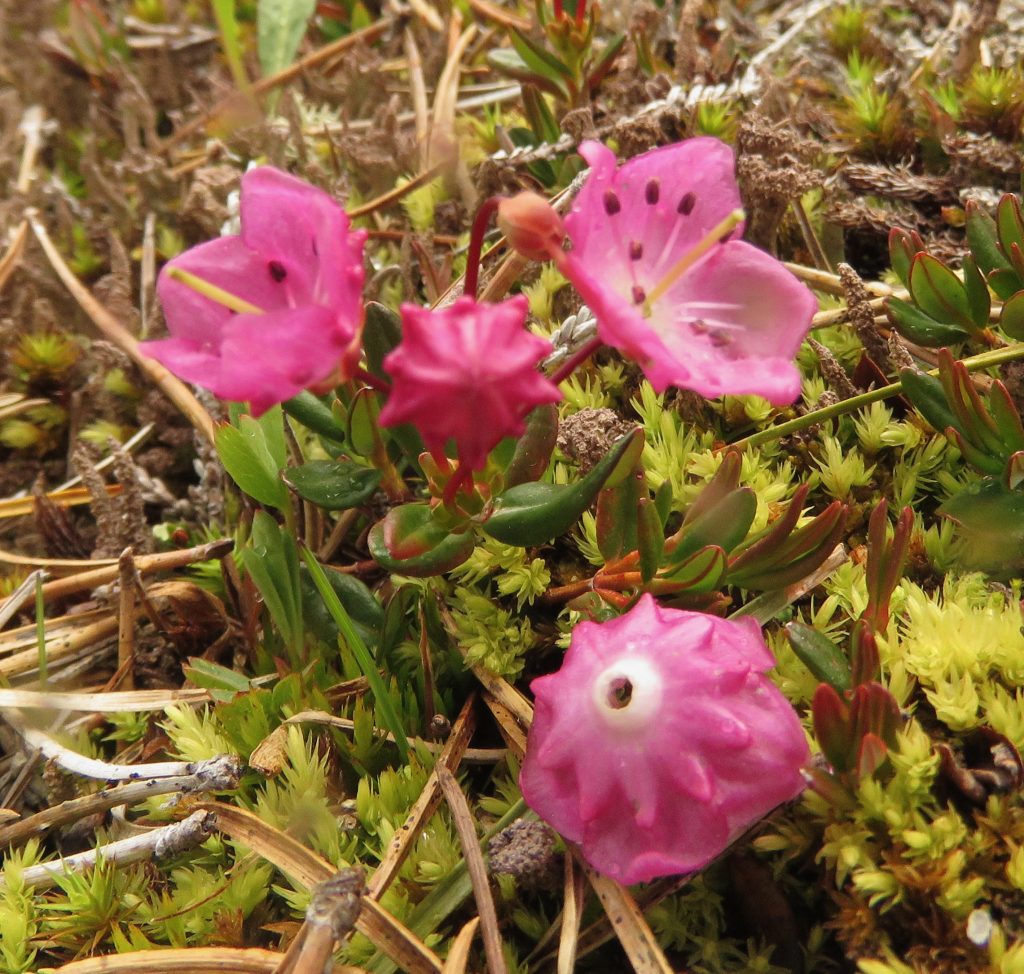
I would have quite a long wait for the others so after a lunch and warm-up in the truck I walked along the logging road. Cut blocks are ugly, even when overgrown, but at the edge were red heather,
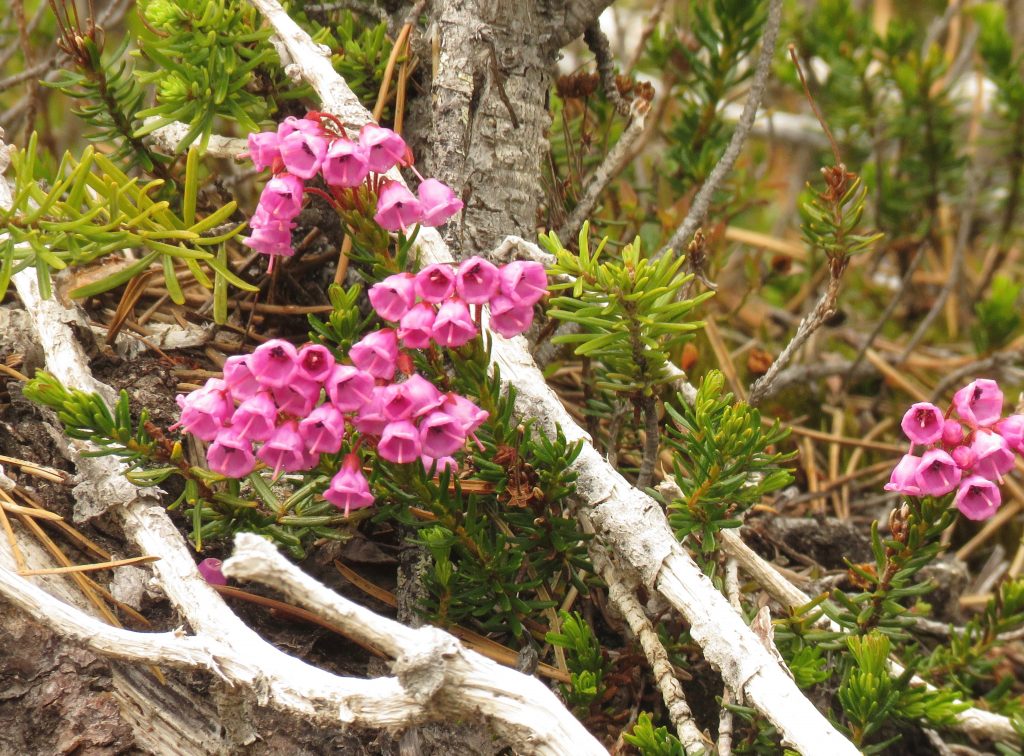
And paintbrushes. (The actual flowers are the green horns. The red part is just for show.)
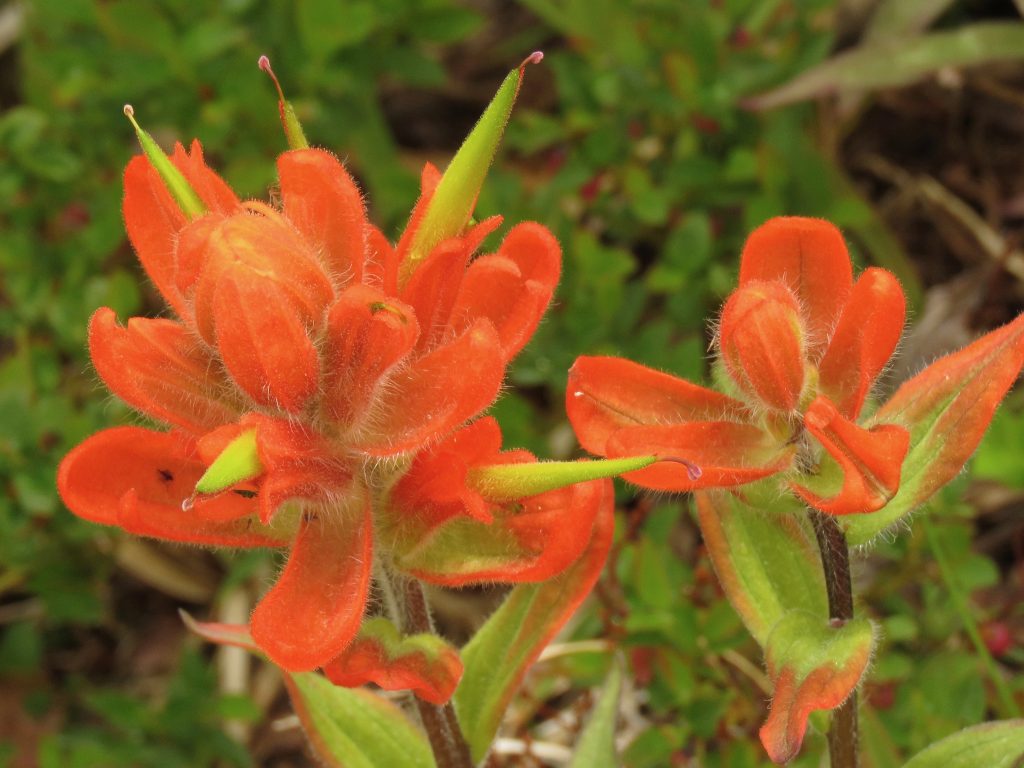
A seeping wet area that was untouched above the road yielded mountain marsh marigolds,
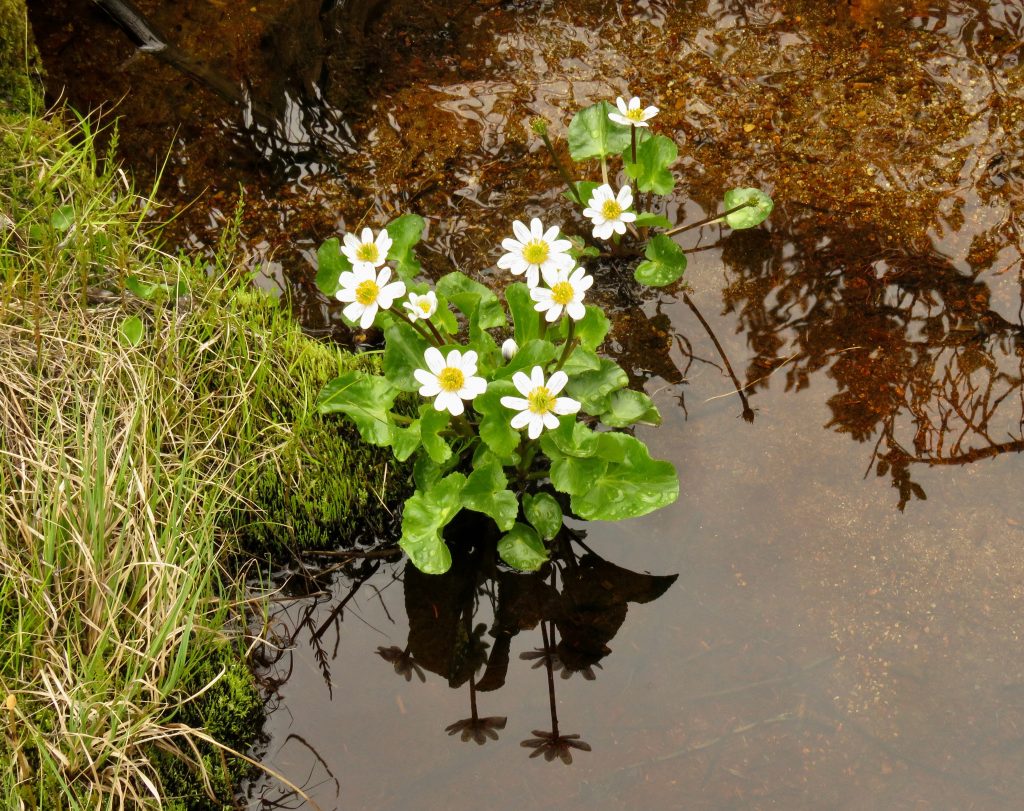
And the little-known yellow anemone, which I had not seen since I left Nuk Tessli.
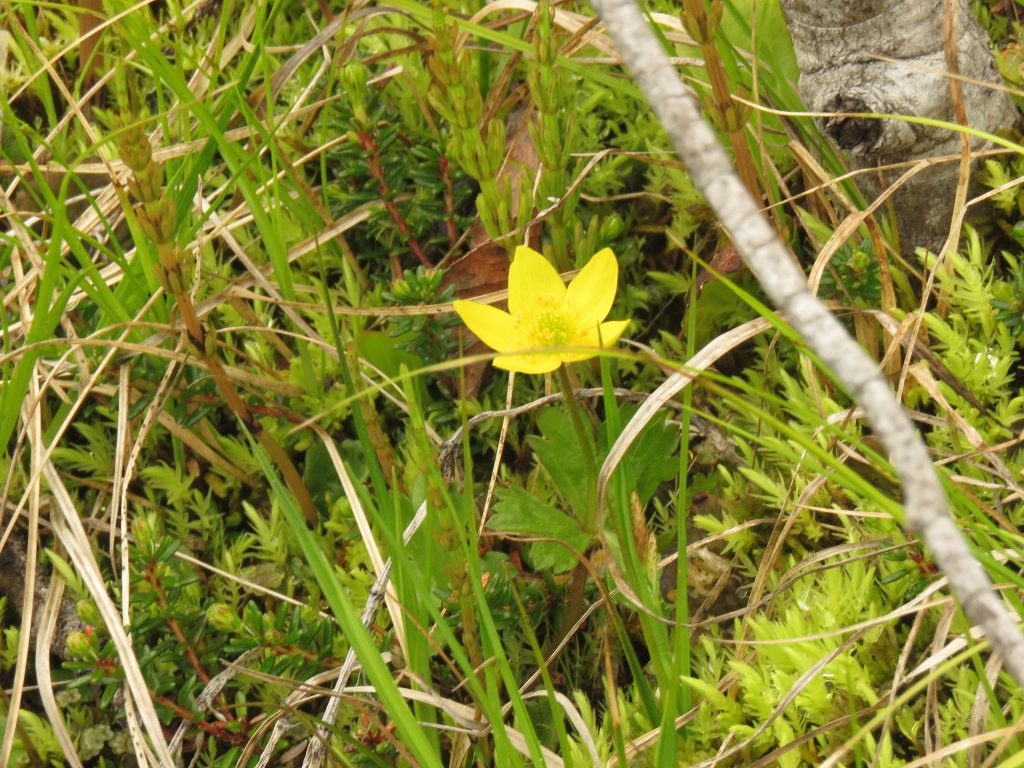
This range map shows it as a northern species, but as with most plants, my mountains are not included. I could add a few more green dots here!
